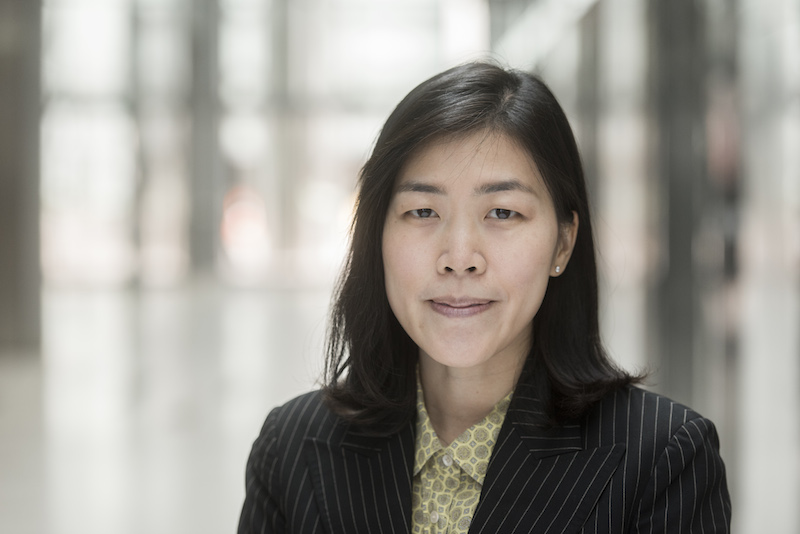
Seungyoon Lee
- Professor // Communication
Research Focus
Network analysis, Resilience, Disaster recovery
Office and Contact
Room: BRNG 2142
Office hours:
- Spring 2026: Tuesday; 1:00-2:00pm
- Friday; 9:00-10:00am
Email: lee90@purdue.edu
Phone: (765) 496-6425
Fax: (765) 496-1394
Ph.D., University of Southern California
M.A., University of Southern California
B.A., Yonsei Univesity
Professor Lee’s research interest focuses on the evolution of communication, knowledge, and collaboration networks in and across organizations over time. Her current emphasis is on applying theories of socio-cultural evolution to complex forms of networks including multiplex and multimodal networks. Her ongoing projects examine the evolution of creative interaction and social ties in project teams; the role of network ties among people and organizations in disaster recovery; and the determinants and outcomes of multiplex ties in various settings. Professor Lee has received the 2009 W. Charles Redding Dissertation Award from the Organizational Communication Division of the International Communication Association. She teaches courses on social network analysis, organizational communication as well as research methods and statistics.
Representative Publications
Lee, S., Siebeneck, L., Benedict, B., Yabe, T., Jarvis, C., & Ukkusuri, S. (in press). Patterns of social support and trajectories of household recovery after Superstorm Sandy: Contrasting influences of bonding and bridging social capital. Natural Hazards Review.
Lee, S., Benedict, B., Ge, Y. G., Murray-Tuite, P., & Ukkusuri, S. V. (2021). An application of media and network multiplexity theory to the structure and perceptions of information environments in hurricane evacuation. Journal of the Association for Information Science and Technology, 72(7), 885-900.
Lee, S., Benedict, B., Jarvis, C., Siebeneck, L, & Kuenanz, B. J. (2020). Support and barriers in long-term recovery after Hurricane Sandy: Improvisation as a communicative process of resilience. Journal of Applied Communication Research, 48(4), 438-458.
Lee, S., Wittrock, Z., & Benedict, B. (2019). Who dunnit: The party mystery game for analyzing network structure and information flow. Connections, 39(1), 1-18. doi:10.21307/connections-2019-005
Lee, S., Sadri, A., Ukkusuri, S., Clawson, R. A, & Seipel, J. (2019). Network structure and substantive dimensions of improvised social support ties surrounding households during post-disaster recovery. Natural Hazards Review, 20(4), 04019008.
Lee, S., Chung, J. E., & Park, N. (2018). Network environments and well-being: An examination of personal network structure, social capital, and perceived social support. Health Communication, 33(1), 22-31.
Lee, S., Foote, J., Wittrock, Z., Xu, S., Niu, L., & French, D. (2017). Adolescents’ perception of peer groups: Psychological, behavioral, and relational determinants. Social Science Research, 65, 181-194.
Lee, S., & Lee, C. (2015). Creative interaction and multiplexity in intra-organizational networks. Management Communication Quarterly, 29(1), 56-83.
Monge, P., Lee, S., Fulk, J., Weber, M., Shen, C., Schultz, C., Margolin, D., Gould, J., & Frank, L. (2011). Research methods for studying evolutionary processes in organizational communication. Management Communication Quarterly, 25(2), 211-251.
Lee, S., & Monge, P. (2011). The coevolution of multiplex communication networks in organizational communities. Journal of Communication, 61(4), 758-779.